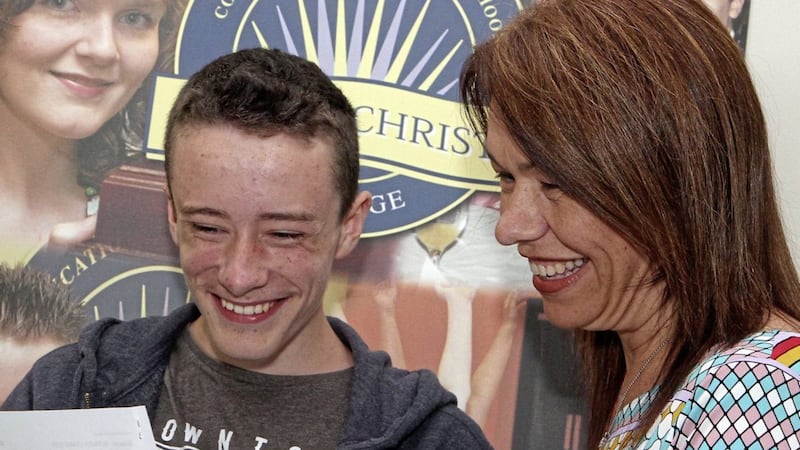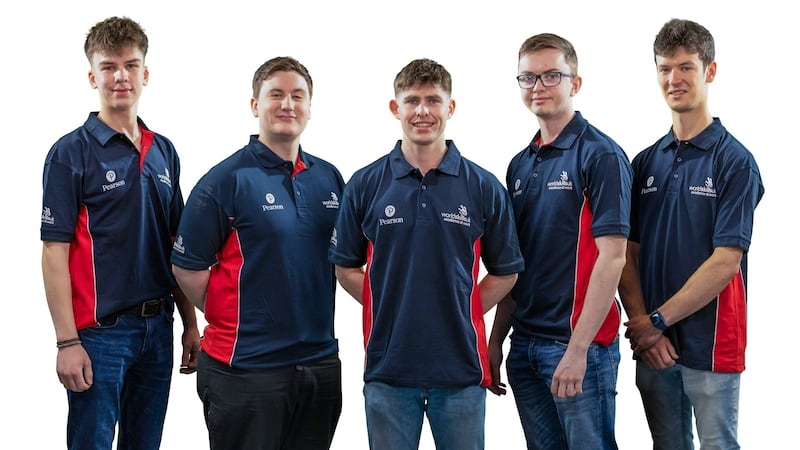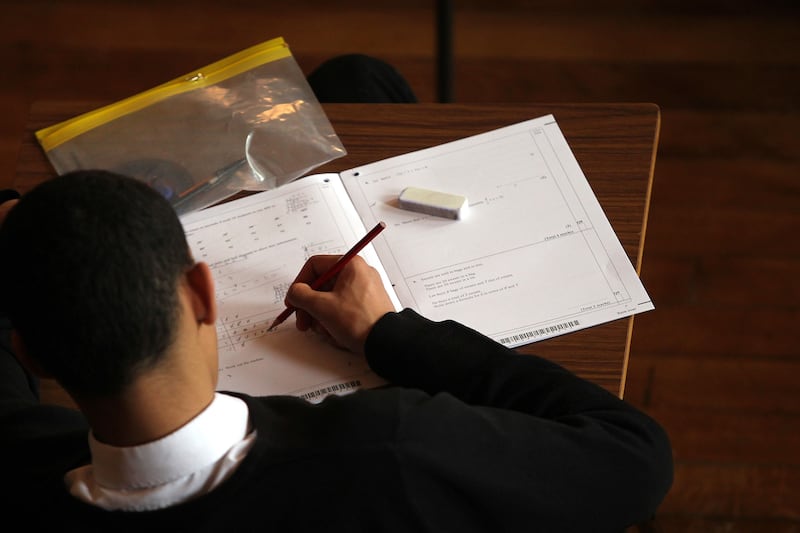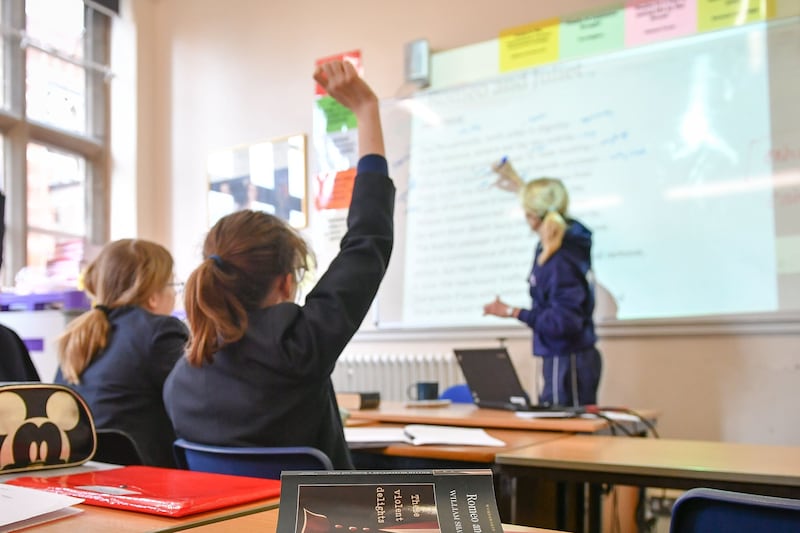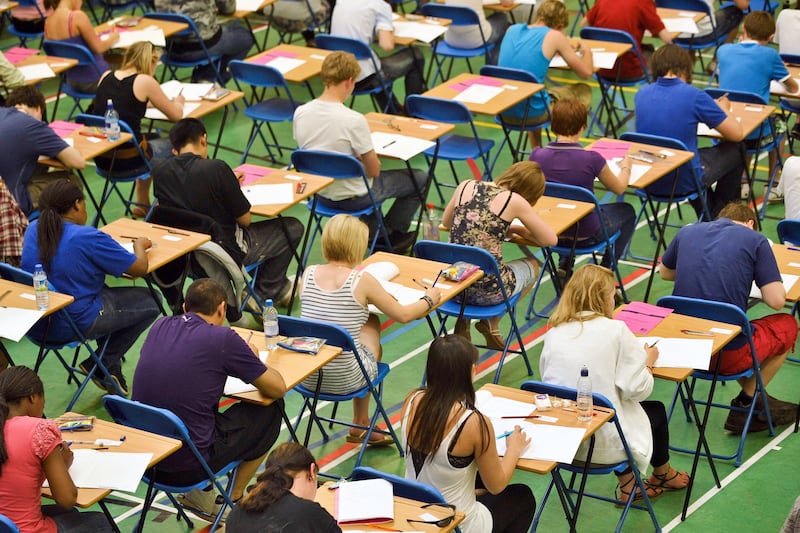RAISING the bar for an A* has led to a fall in the percentage of top GCSE grades.
A change to the grading scale in the north means only "exceptional" children can now score the A*.
Results published yesterday show that pupils continue to perform well.
GCSE grading has changed across Northern Ireland, England and Wales.
English based awarding bodies now use a 9-1 scale. The north added a new C* grade to help it align with the 9-grade scale in England.
As pupils take papers set by different boards, exam chiefs said it was important that people could compare the different scales.
Young people will have received both letters and numbers in their results yesterday.
The A* grade has been realigned to the 9 in England, making it harder to achieve.
The new C* is aligned with the 5. Comparisons can be also made across key grades A/7, C/4 and G/1.
The change in the north, as expected, saw, A* grades drop by 2.2 percentage points from 9.9 per cent last year to 7.7 per cent.
Overall, pupils performed strongly, with slight increases at grade C and above.
The proportion of candidates awarded A*-C increased from 81.1 to 82.2 per cent.
Boys narrowed the performance gap with girls to 7.1 percentage points.
GCSE maths saw a 3.2 percentage point increase at A*-C from 68.1 to 71.3 per cent. There was also a slight improvement in English.
More pupils entered subjects including health and social care, construction and drama, and fewer took German, ICT and Spanish.
Science single award moved out of the most popular subjects for boys and was replaced by geography.
Home economics and ICT was replaced by history and single award science among girls.
There was a small decline in stem (science, technology, engineering and mathematics) subjects as well as languages.
Entries declined by 5.2 per cent - there were fewer entries by 15 and 17 year olds.
Justin Edwards, Chief Executive of the Council for the Curriculum, Examinations and Assessment (CCEA), welcomed the strong performance.
"This year is the first full cohort award of the new Northern Ireland GCSE A*-G grading, used in all CCEA GCSE qualifications," he said.
"All GCSEs, regardless of whether they are graded using letters or numbers, will continue to reflect learners' achievements.
"Congratulations to all Northern Ireland's learners who have once again demonstrated good outcomes across all grades, reflecting the hard work that takes place in our schools and colleges."
Rachael Saunders, education campaign director at Business in the Community, welcomed the overall improvement in the pass rate.
"However, it's alarming that poorer pupils are nearly twice as likely to leave school without good English and maths grades as those who are well off," she said.
"Four million children live in poverty in the UK and this adds to the evidence that children that grow up in poverty are less likely to succeed at school and work. We need a system that gives every pupil the chance to succeed in the future."
Justin McCamphill, NASUWT National Official for Northern Ireland, said the results were a testament to the skills and talent of young people and the teachers and principals who worked hard to support them.
"But this continued improvement is under threat unless funding to the education service keeps up with inflationary pressures and the increasing numbers of pupils in the system," he added.
"It is also important that all pupils have the opportunity to study a wide range of subjects which reflect their interests and prepare them for further study and their chosen careers."
